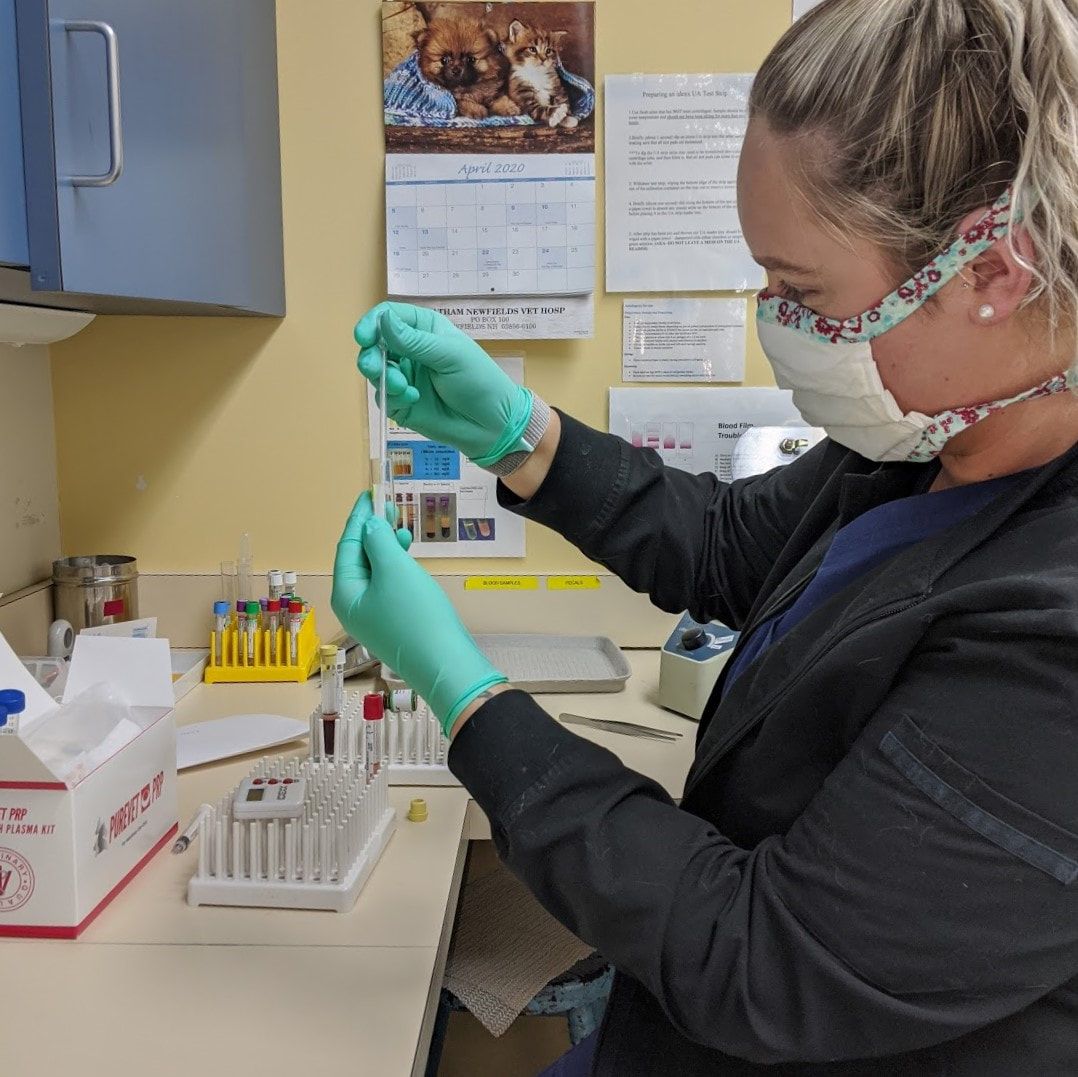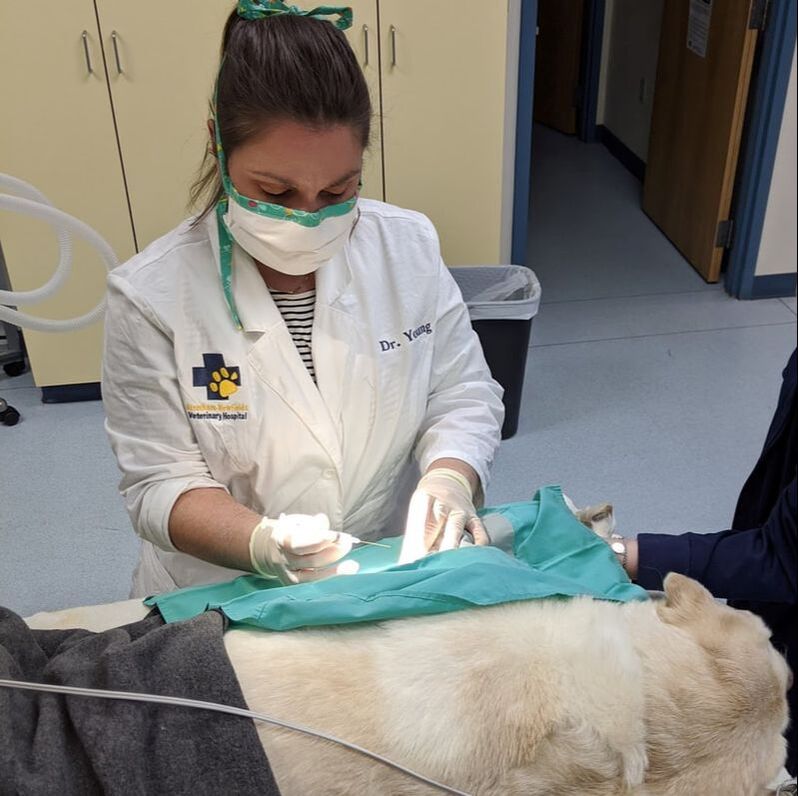Platelet Rich Plasma for Arthritis
What is PRP?Platelet Rich Plasma (PRP) is made from blood plasma that we collect from your pet. It contains concentrated amounts of platelets and growth factors. Platelets contain healing growth factors and bio-active proteins that may help with tissue healing and inflammation. The special preparation process also filters out white blood cells which have been linked to scar tissue formation.
PRP is applied directly to the site of tissue damage by, for example, intra-articular injection. One of the most common and actively researched applications of PRP is intra-articular injections, especially for our osteoarthritis patients. PRP may sound familiar as this is also a trending topic in human sports orthopedic medicine for sports injuries. |
What is the PRP process?After your veterinarian has made a therapeutic recommendation for PRP, your pet will be scheduled for the in-hospital procedure.
This procedure entails:
|
Is PRP safe for my pet?The risks associated with PRP injections are very low as we are using a product of your pet’s own blood. The biggest risk associated with PRP is infection in the injected joint, which is uncommon due to the sterility measures taken for sample preparation and injection into the joint. Sedation medications are carefully selected based on your individual pet, and your pet is closely monitored when sedated. Your pet can go home the same day.
A series of 3 PRP treatments, 2-3 weeks apart is recommended. This procedure may be combined with acupuncture, Adequan, and pain-relievers, if needed. Written by Dr. Young with usage of information from MediVet Biologics PRP. |



